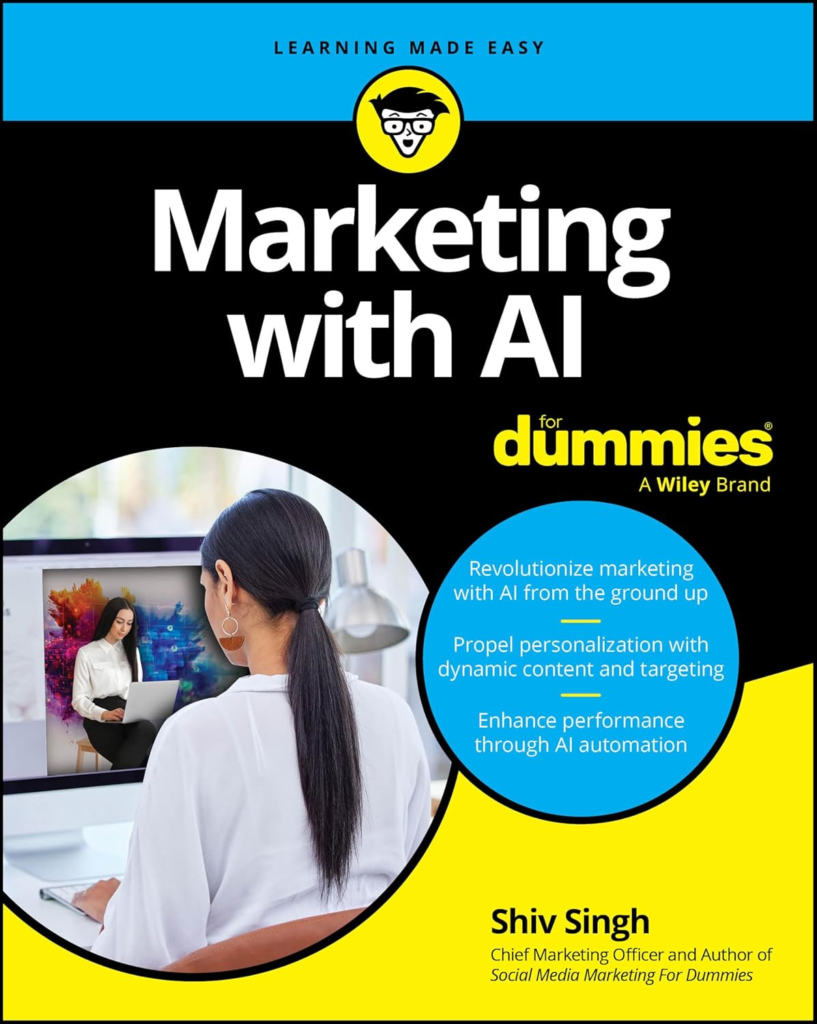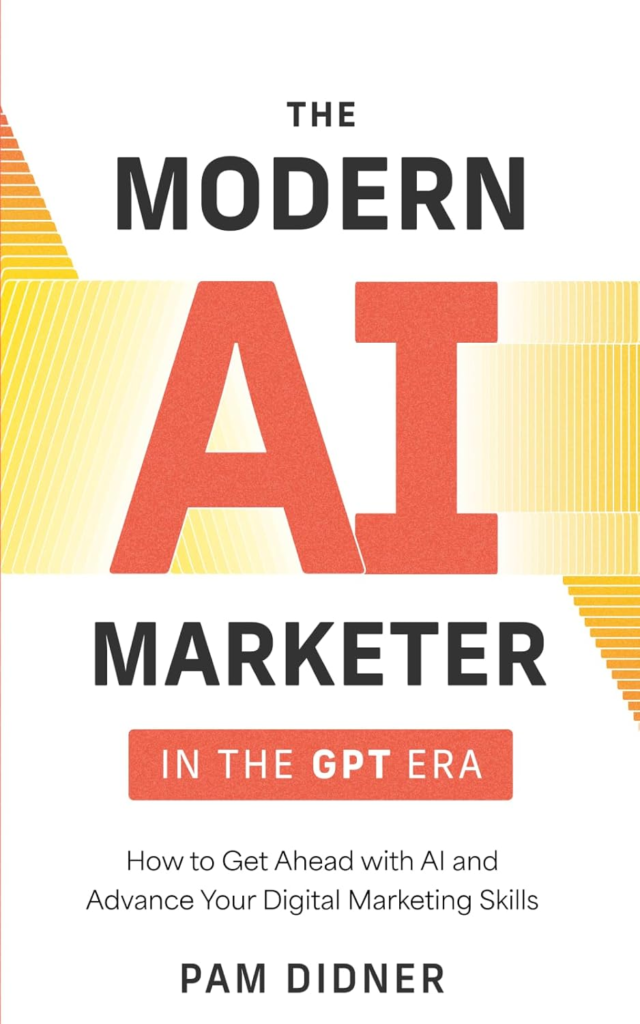Understanding Artificial Intelligence and Its Role in Marketing
Artificial Intelligence (AI) has emerged as a transformative force in the marketing landscape, reshaping how businesses engage with customers and enhance their brand strategies. At its core, AI refers to the simulation of human intelligence in machines that are programmed to think, learn, and adapt. Within marketing, various facets of AI come into play, including machine learning, natural language processing, and predictive analytics. Each of these components contributes to optimizing marketing efforts by leveraging data to generate actionable insights.
Machine learning, a subset of AI, allows systems to learn from data inputs and improve over time without human intervention. This capability is invaluable in customer segmentation and targeting, enabling marketers to identify and understand their audiences better. For example, companies like Amazon utilize machine learning algorithms to analyze customer purchasing behavior and recommend products tailored to individual preferences, thereby increasing conversion rates.
Natural language processing (NLP) equips machines with the ability to understand and interpret human language. This technology plays a significant role in chatbots and virtual assistants that enhance customer service interactions. Businesses such as Sephora employ NLP to provide personalized recommendations through their chatbot, enriching the overall customer experience and fostering brand loyalty.
Predictive analytics leverages AI to forecast future trends based on historical data. This approach allows marketers to anticipate customer needs, leading to more proactive engagement strategies. For instance, Netflix uses predictive analytics to suggest content based on viewers’ past behaviors, greatly enhancing user satisfaction and retention rates.
As AI technologies continue to evolve, they are significantly transforming traditional marketing methods. By enabling brands to leverage data more effectively, businesses can make informed decisions that enhance customer engagement and drive growth. Companies that successfully adopt these AI tools often find themselves at a competitive advantage in an increasingly digital marketplace.
(Purchase today by clicking on the image)
Data-Driven Insights: Leveraging AI for Consumer Behavior Analysis
In today’s competitive marketplace, leveraging artificial intelligence (AI) to gain data-driven insights into consumer behavior is essential for brands aiming to enhance their marketing strategies. AI tools are designed to analyze vast amounts of consumer data, identifying trends, patterns, and preferences with remarkable accuracy. By employing data mining techniques, businesses can not only uncover valuable insights but also gain a deeper understanding of their target audience.
One significant application of AI in this context is customer segmentation. By analyzing data, AI systems can group consumers based on various attributes such as purchasing behavior, demographics, and interests. This segmentation allows brands to tailor their marketing efforts, creating personalized campaigns that resonate with specific segments, ultimately leading to improved engagement and higher conversion rates. Utilizing AI for consumer behavior analysis enables businesses to move beyond one-size-fits-all strategies, paving the way for more effective and relevant marketing initiatives.
Furthermore, ethical considerations in data usage are paramount. As brands collect and analyze consumer data, maintaining trust and loyalty becomes critically important. Companies must adhere to ethical guidelines and privacy regulations to ensure that the data is utilized responsibly. Consumers are increasingly aware of how their data is being used, and transparency is key to establishing trust. Brands that communicate their commitment to ethical data practices are more likely to foster lasting relationships with their customers.
Several successful case studies illustrate the impact of AI-driven consumer behavior analysis. For instance, fashion retailers have utilized AI algorithms to predict trends and manage inventory effectively, leading to reduced waste and increased sales. Additionally, companies in the food and beverage sector have employed AI to analyze customer feedback and preferences, allowing them to refine their product offerings. These examples highlight the transformative power of AI in understanding consumer behavior, ultimately guiding brands in their decision-making processes.
Personalized Marketing: The Power of AI in Tailoring Customer Experiences
Personalized marketing refers to the process of delivering tailored content and experiences to consumers based on their individual preferences, behaviors, and needs. In recent years, the landscape of personalized marketing has been significantly transformed by the advent of artificial intelligence (AI). AI-driven technologies play a crucial role in analyzing vast amounts of demographic and behavioral data, ultimately enabling brands to create customized marketing strategies that resonate with their target audience.
One notable innovation is the use of chatbots, which leverage AI to engage customers in real-time interactions. These intelligent systems can analyze user queries and preferences, providing personalized responses and recommendations that enhance the customer experience. For instance, companies like Sephora utilize chatbots on their websites and social media platforms to offer personalized product suggestions, garnering positive customer feedback and increased engagement.
Recommendation systems also exemplify how AI enhances personalized marketing efforts. By examining user behavior, purchase history, and preferences, these systems generate tailored product suggestions, thereby increasing the likelihood of conversions. E-commerce giants such as Amazon have successfully implemented recommendation algorithms that provide suggested items based on previous purchases and browsing history, leading to greater customer satisfaction and loyalty.
Additionally, targeted advertising represents another critical area where AI significantly contributes to personalization. Through the analysis of consumer data, brands can deliver highly relevant advertisements to specific audience segments. This level of customization not only increases the efficiency of ad spend but also boosts conversion rates by ensuring that customers receive content that aligns with their interests and needs. Companies like Netflix, for instance, use data-driven advertising strategies to promote shows and movies that are likely to appeal to individual viewers, enhancing user interaction with the platform.
Overall, the integration of AI in personalized marketing is reshaping how brands connect with their customers. By leveraging AI technologies, organizations can create more effective marketing campaigns that drive customer satisfaction and foster long-term relationships.
Challenges and Future Trends in AI-Driven Marketing
As organizations increasingly incorporate artificial intelligence (AI) into their marketing strategies, they face several challenges that must be addressed to harness its full potential. One of the most pressing issues is data privacy. With the growing concern over personal data protection, marketers must navigate complex regulations while leveraging consumer data to optimize AI-driven campaigns. Maintaining transparency with customers regarding how their information is used is essential to building trust and ensuring compliance.
Another challenge is the reliance on technology. While AI offers significant advantages, businesses may become overly dependent on automated systems, which can lead to a deterioration of human intuition in decision-making. Marketers must find a balance between leveraging AI capabilities and retaining human oversight and creativity. Additionally, the need for skilled personnel is critical. Organizations must invest in training their workforce or hiring specialists who understand AI technologies and can implement these innovations effectively within their marketing frameworks.
Looking forward, several trends are likely to shape the future of AI-driven marketing. One notable advancement is predictive analytics, which employs AI to analyze consumer behavior and forecast future trends. This capability enables marketers to tailor their strategies, thus improving engagement and conversions. Furthermore, the rising prevalence of voice search technology is transforming the way consumers interact with brands. Marketers will need to optimize their content for voice search to capture this growing audience segment.
The impact of AI on consumer decision-making is profound, as it enhances personalization and customer experiences. As AI continues to evolve, marketers should focus on integrating these technologies into their strategies. Preparing for future developments in AI, understanding the importance of ethical data usage, and fostering a culture of continuous learning will enable organizations to thrive in this rapidly changing landscape. In conclusion, adapting to the evolving AI landscape is crucial for marketers to remain competitive and relevant in today’s digital marketplace.
(Purchase today by clicking on the image)






